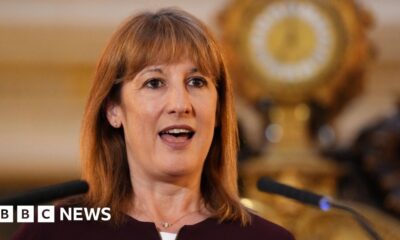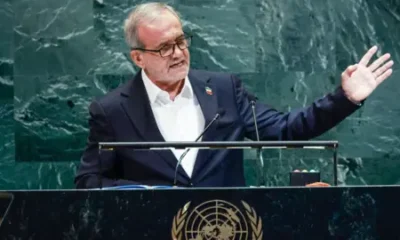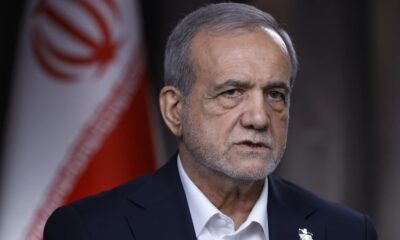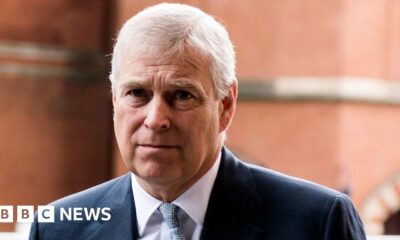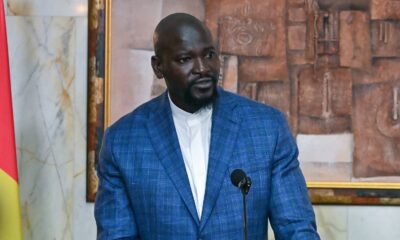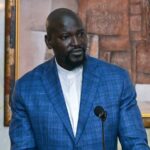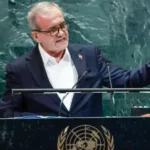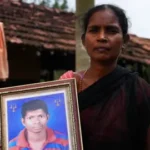Breaking News
Prince of Wales says 2024 was ‘hardest year’ of his life
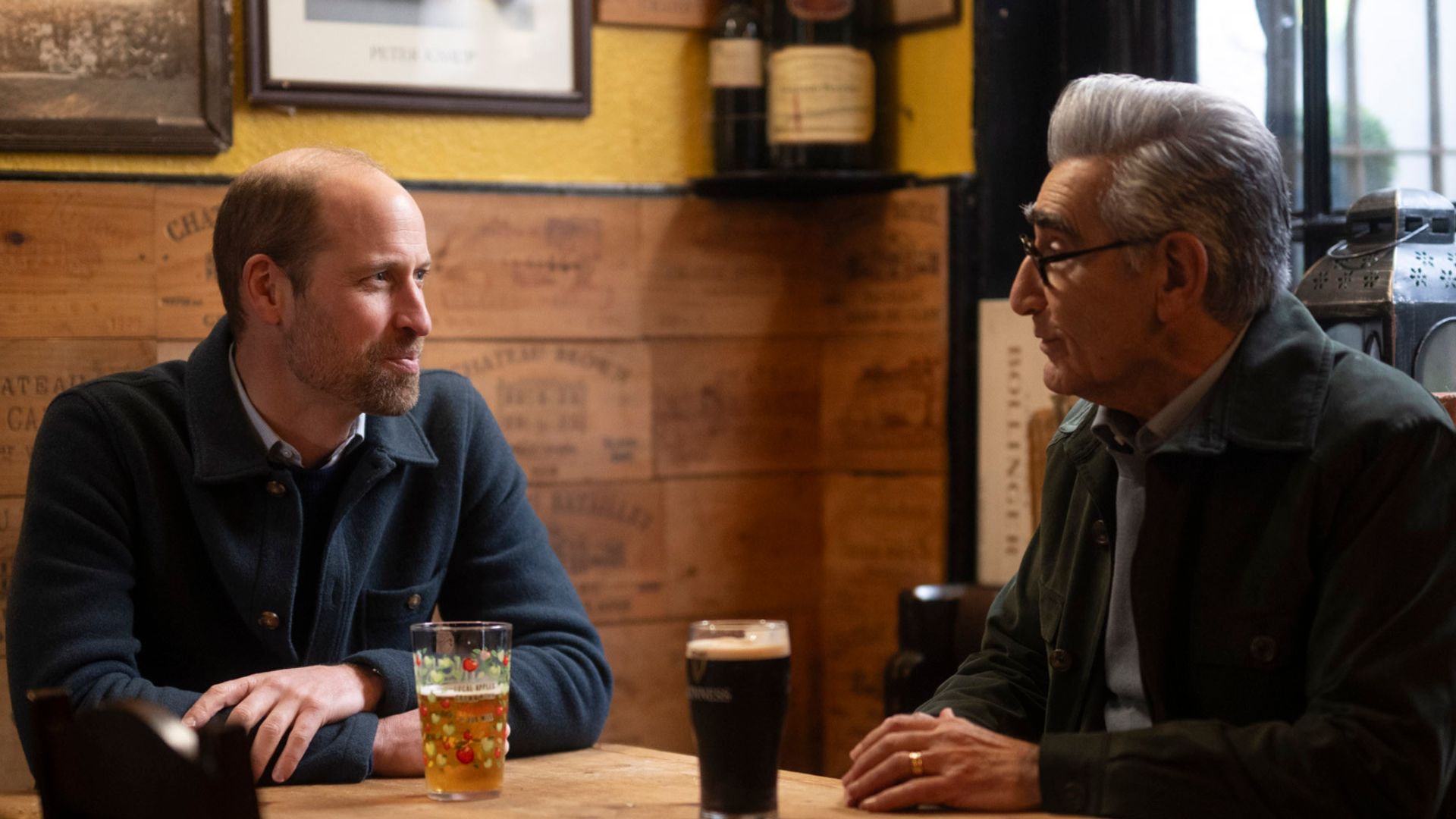
This post was originally published on this site.
The Prince of Wales has told Schitt’s Creek star Eugene Levy that 2024 was the “hardest year” of his life.
The future king told the Hollywood star about last year, which saw his wife, the Princess of Wales, and his father, the King, both undergoing treatment for cancer.
The pair were catching up over a pint in a pub as part of Apple TV+ series The Reluctant Traveler With Eugene Levy, which will air next month.
In the episode Living The Royal Life In The UK, William tells Levy: “I’d say 2024 was the hardest year I’ve ever had.
“Life is said to test us as well and being able to overcome that is what makes us who we are.”
The preview of the episode also saw Levy invited to “pop down” to Windsor Castle for a private tour by the prince.
Levy, 78, can be seen reading out an invitation saying: “I heard that your travels have brought you to the UK and I wondered if you might like to see Windsor Castle?
“If you’re free at 10 tomorrow, why don’t you pop down to the Castle for a private tour.
“Would be great to see you!”
Read more from Sky News:
Hackers ‘behind nursery cyber attack’ reveal details of threat
Elon Musk and Prince Andrew named in latest Epstein files release
After touring the castle, Levy asks William what he does when he is at home, and the prince laughs and replies: “Sleep. When you have three small children, sleep is an important part of my life.”
New episodes of The Reluctant Traveler With Eugene Levy will premiere weekly until the finale on 31 October 2025.
The special episode with William will air on 3 October.
Breaking News
Iran faces reintroduction of nuclear sanctions
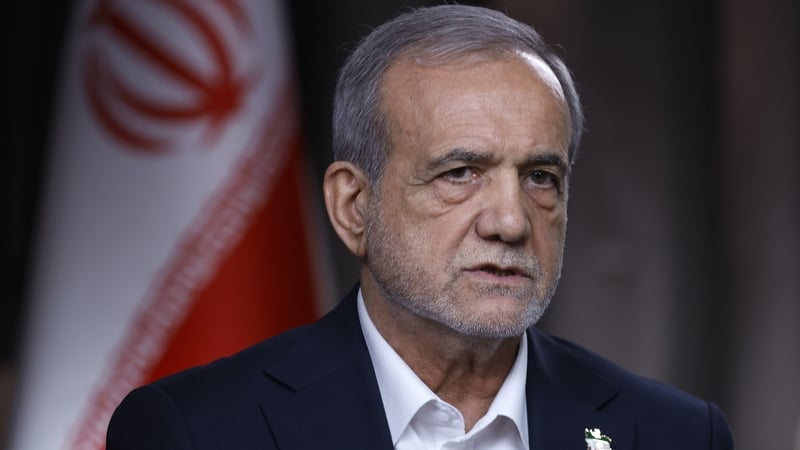
Read more on post.
Deep sanctions on Iran over its nuclear programme look set to go into force once again, even as a UN watchdog confirmed inspections of its atomic sites had resumed.
Russia failed in an effort with China yesterday to delay the reimposition of the measures on Iran, with Russia raising the prospect that it may not enforce the sanctions – despite being required to under international law.
European powers triggered the process to reimpose economic sanctions after demanding Iran reverse a series of steps it took after Israel and the United States bombed its nuclear sites in June.
The UN’s nuclear watchdog, the IAEA, did confirm that inspections of Iranian nuclear sites had resumed this week after a hiatus following the US and Israel’s strikes.
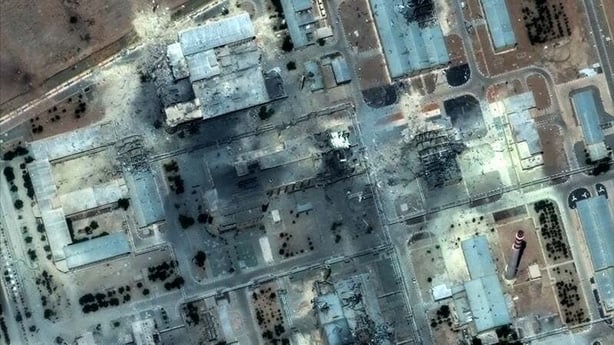
Resumption of the International Atomic Energy Agency’s inspections was a key measure demanded by the Europeans – Britain, France and Germany.
“I signed an agreement with the agency in Cairo and the director general of the agency is quite satisfied and happy,” Iran’s Foreign Minister Abbas Araghchi said.
Mr Araghchi has insisted any effort to reimpose sanctions is “legally void,” vowing never to “bow to pressure” on its nuclear programme – but left the door open to more talks.
Iran’s President Masoud Pezeshkian said Iran would not leave the Nuclear Non-Proliferation Treaty in retaliation to sanctions being reimposed.
China and Russia’s effort to buy time for diplomacy was rejected by nine countries against four in favour.
“UN sanctions, targeting Iranian proliferation, will be reimposed this weekend,” said Britain’s ambassador to the UN Barbara Woodward.
“We stand ready to continue discussions with Iran on a diplomatic solution to address international concerns about its nuclear programme. In turn, this could allow for the lifting of sanctions in the future,” she added.
Read more: UN nuclear watchdog chief says inspectors ‘back in Iran’
The UN sanctions, notably on Iran’s banking and oil sectors, are set to take effect automatically at the end of today.
China and Russia at the Security Council session pushed a resolution that would have extended talks until 18 April 2026.
“We had hoped that us, that European colleagues in the US, would think twice, and that they would opt for the path of diplomacy and dialog, instead of their clumsy blackmail,” the Russian deputy ambassador to the UN told the council prior to the vote.
“Did Washington, London, Paris, Berlin make any compromises? No, they did not,” he added.
‘Several workable solutions’
France’s ambassador to the UN Jerome Bonnafort told the council all sides had been “trying to find, until the very last moment, a solution.”
France – speaking for itself, Germany, and Britain – has told Iran it must allow full access to UN nuclear inspectors, immediately resume nuclear negotiations, and offer transparency on highly enriched uranium, the whereabouts of which has been the subject of speculation
The European nations “and the US have consistently misrepresented Iran’s peaceful nuclear programme,” said Mr Araghchi who insisted Iran had put forward “several workable” proposals.
The European countries’ “pursuit of the so-called ‘snapback’ is legally void, politically reckless and procedurally flawed,” he said.
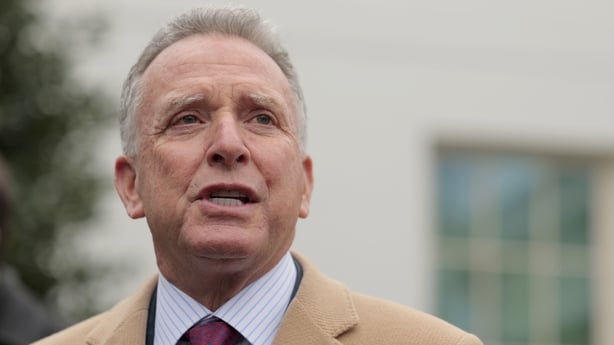
The 2015 deal, negotiated during Barack Obama’s presidency, lifted sanctions in return for Iran drastically scaling back its controversial nuclear work.
US President Donald Trump in his first term withdrew from the deal and imposed sweeping unilateral US sanctions, while pushing the Europeans to do likewise.
Steve Witkoff, Mr Trump’s roving envoy who had been negotiating with Iran until Israel attacked, said that Iran was in a “tough position” but also held out hope for a solution.
But Iran’s president was withering in his assessment of the United States diplomatic efforts, claiming that Mr Witkoff and his team were not serious.
“We came to understandings a number of times but they were never taken seriously by the Americans,” Mr Pezeshkian told reporters on the sidelines of the UN General Assembly.
Iran has long contended that it is not seeking nuclear weapons, pointing to an edict by Supreme Leader Ayatollah Ali Khamenei, and US intelligence has not concluded that the country has decided to build a nuclear weapon.
Breaking News
Guinea Supreme Court confirms vote to change constitution
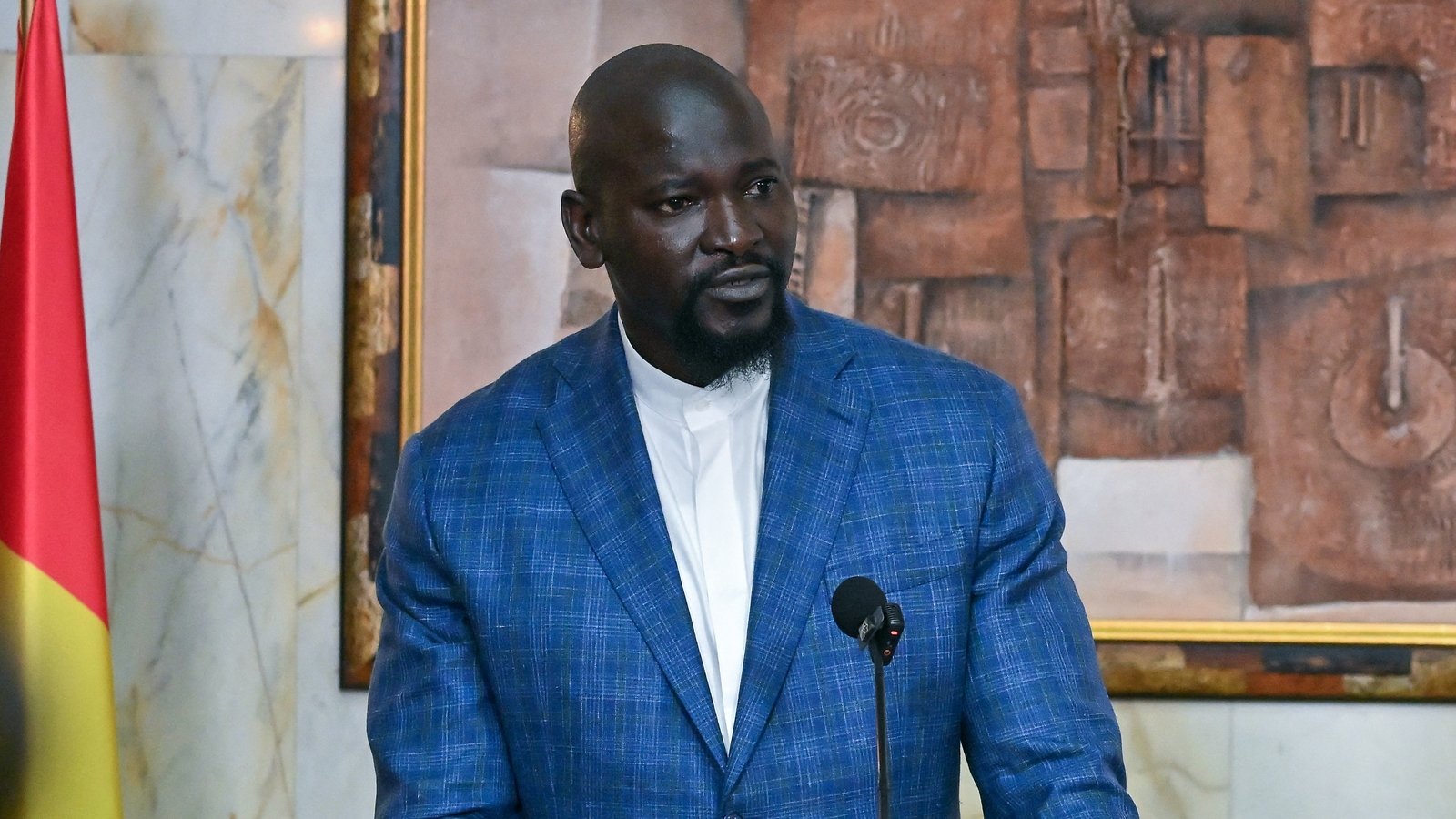
Read more on post.
Guinea’s Supreme Court confirmed the result of a referendum to approve a new constitution in the junta-ruled country, saying it was backed by an overwhelming majority of voters.
The final tallies – 89.38% in favour and 10.62% against – confirmed the provisional vote results announced on Tuesday evening.
Opposition parties had called on voters to boycott last Sunday’s referendum, accusing General Mamady Doumbouya of using it to stay in power.
Earlier, they had filed a request to the court to annul the result. The request was rejected.
The court’s confirmation paves the way for elections to be held in December.
The signs suggest that Mr Doumbouya will run for the presidency, despite an earlier promise that he would not.
Guinea, an impoverished nation in west Africa, has long been blighted by coups and violence from authoritarian regimes.
When the military toppled President Alpha Conde in 2021, they initially said they would return the country to civilian rule by 2024, before reneging on that commitment.
United Nations rights chief Volker Turk called on the military regime to lift bans on opposition parties and media outlets.
He also criticised what he said was a broader assault on fundamental rights in Guinea since the coup, referring to a rise in arbitrary arrests and enforced disappearances.
Breaking News
Dating app sex assault victim urges others to seek immediate help
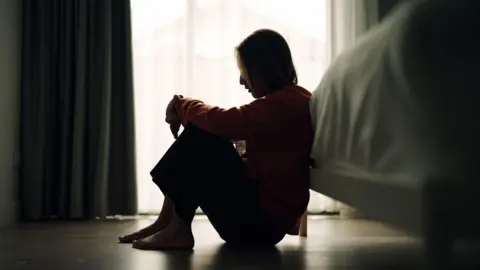
Read more on post.
Kevin SharkeyBBC News NI
A student who was sexually assaulted after meeting a man on a dating app has appealed to other survivors to seek immediate help to ensure there’s a record of the abuse.
The woman, who was 20 at the time, was attacked during a short-term relationship after she moved to Belfast to begin her university studies.
Last year, 25-year-old Fearghall Joseph Mulgrew, of Mullaghmoyle Road in Stewartstown, County Tyrone was jailed after pleading guilty to sexually and physically assaulting the woman.
Sophie, not her real name, believes her attendance at a sexual assault referral centre afterwards was crucial to the prosecution.
- Warning: Some readers may find parts of this article distressing
A judge at Belfast Crown Court said Mulgrew subjected the woman to a “degrading and frightening” experience, and he used her “as a sexual toy whose personal integrity and feelings were entirely subservient to your sexual desires”.
He was given a 22-month sentence in April 2024, serving 14 months on licence.
The court was told Mulgrew was a student in Belfast when he initially met the woman on the dating app Tinder in March 2021.
They agreed that the woman would come to his accommodation for “rough” intercourse at 03:00 GMT.
The woman said it was not something she had done before, but she agreed to try it, and the pair had consensual sex.
‘He wanted to do things his way’
The victim, who wishes to remain anonymous, has now spoken about her ordeal and explained that they had been in a casual relationship for about a month.
“The day of the incident he’d made it clear that he wanted to do things his way which included rough sexual contact. I hadn’t quite expected it to be what it was,” she told BBC News NI.
“He bit me, you know, in intimate areas where I had to kick him to get him off, to get him to stop, and even though we had a safe word he made it very obvious that that wasn’t even going to work, and he held my mouth closed with his teeth so I couldn’t say anything.
“That’s what sticks with me the most, the biting, it was all over my face.”
Reporting to police
Sophie, who has since left Northern Ireland, went to the Rowan sexual assault referral centre for help soon afterwards but she did not report the incident to the police until almost a year later.
She now believes her attendance at the centre was crucial to the subsequent prosecution of her abuser.
“I would advise that, even if you don’t know, because sometimes you can be so confused and so in shock that you don’t know but you think, then just get yourself looked at.
“For me, if I hadn’t gone to the Rowan, me reporting to the police would have been 100% more difficult. They wouldn’t have had my statement from the time, they wouldn’t have had photographs, and they wouldn’t have had all the swabs and things that they took.
“That evidence is invaluable especially if you are going into court,” she said.
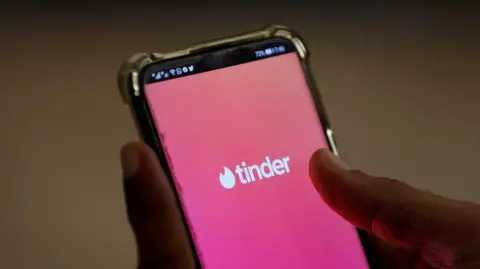 Reuters
ReutersHow are police tackling violence against women?
It has been three years since the Police Service of Northern Ireland (PSNI) launched an action plan to tackle violence against women and girls (VAWG).
The PSNI said it had made 5,042 arrests by the end of August 2025 under new legislation and conducted hundreds of targeted patrols.
They said they have also put in place four stalking protection orders using the new laws.
Each month, 84 arrests have been made on average for domestic abuse, there have been an average of 19 arrests each month for the offences of stalking, threatening and abusive behaviour, and 76 arrests each month for non-fatal strangulation.
In the 12 months to July 2025 there were 21,729 violence against women and girls (VAWG) offences recorded – a reduction of 4% compared to the previous 12 months.
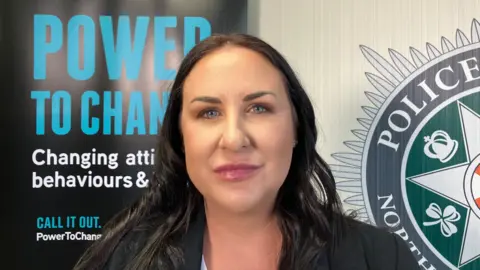
Det Ch Insp Leah Crothers, one of the PSNI’s tackling VAWG leads, said they “remain committed to doing everything” they can to prevent harm and call out unacceptable attitudes and behaviours.
“We have always been clear that it will take a societal effort to make a real change,” she added.
“Tackling violence against women and girls requires commitment from all — where perpetrators are held to account, communities stand together, and we work with partners to make every space safe. This remains our goal.”
Sophie said “too many men had blurred lines of consent and a misogynistic view on life”.
“I and so many other young women have suffered because of this. I am standing up to say it is not right and the only way to put a stop to it is to educate men and boys and for women like me to feel supported enough to report.”
If you are affected by domestic abuse, there is a range of support services available via the BBC’s Action Line page.
-
Politics4 days ago
European Parliament snubs Orbán with vote to shield Italian MEP from Hungarian arrest
-
Culture3 weeks ago
Life, loss, fame & family – the IFI Documentary Festival in focus
-
Culture2 months ago
Fatal, flashy and indecent – the movies of Adrian Lyne revisited
-
Environment1 week ago
Key oceans treaty crosses threshold to come into force
-
Health5 days ago
EU renews support for WHO’s Universal Health Coverage Partnership
-
Culture1 week ago
Farewell, Sundance – how Robert Redford changed cinema forever
-
Culture4 days ago
Twilight at 20: the many afterlives of Stephenie Meyer’s vampires
-
Culture4 weeks ago
What is KPop Demon Hunters, and why is everyone talking about it?





